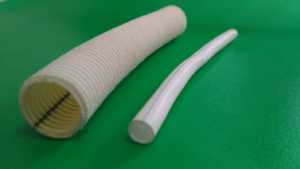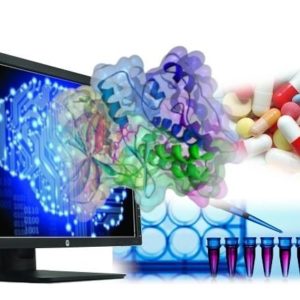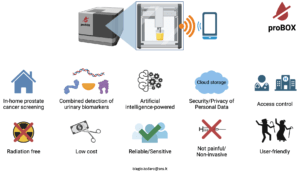New systems and devices that leverage the latest technologies for faster, cheaper, and more effective solutions in the medical industry
Between digitalization, artificial intelligence, augmented reality and wearable devices, discover the medical themed projects that took part in MFR 2022
In the medical and health field, technology is making great progress with the introduction of new systems and devices that exploit the latest technologies to provide solutions that are faster, cheaper and, above all, effective.
Artificial intelligence, 3D printing, virtual and augmented reality, wearable devices, apps, are just some of the new protagonists that are shaping the future of medicine and that have been the focus of numerous projects presented during the tenth edition of Maker Faire Rome 2022.
RESCUE: engineeREd biodegradable vaSCUlar prosthEses
A project that consists in the development and validation of small diameter vascular prostheses, that are biodegradable, biocompatible and designed with bioactive compounds.
A revolutionary idea in the field of vascular surgery that aims to overcome the limitations that currently make unavailable vascular prostheses with a diameter of less than 6 mm.
RESCUE could modify surgical procedures, avoiding the possibility to undergo repeated interventions for the replacement of common prostheses, because it is designed with bioactive compounds that allow not only to support cell growth, but also to actively interact with cells.
A project realized by Domenico Palombo, Professor of Vascular Surgery at UniGe; Patrizia Perego, Professor of Chemical Plants at UniGe; Pier Francesco Ferrari, researcher at UniGe with expertise in biomaterials and nanotechnologies; Bianca Pane and Giovanni Spinella, Associate Professors of Vascular Surgery at UniGe; Bahar Aliakbarian, researcher and associate professor at Axia Institute.
 Computer simulations and artificial intelligence to boost the drug discovery process
Computer simulations and artificial intelligence to boost the drug discovery process
A project that uses computational simulations and artificial intelligence to design the development of new potential medicines.
Computer simulation and artificial intelligence techniques have become an integral part of the medicine discovery process, allowing a significant reduction in time and costs.
The performance of current computers allows the use of new in silico methods for the identification of therapeutic targets and for the virtual screening of a wide range of compounds. Through these new approaches it has been possible to identify small molecules useful in the treatment of rheumatoid arthritis, new agents for the treatment of ovarian cancer, new compounds with senolitic activity and new potential treatments for SARS-Cov-2 infection.
The project was realized by Maria Cristina De Rosa, Davide Pirolli, Benedetta Righino and Chiara Camponeschi of the laboratory of Molecular Modelling & Virtual Screening of SCITEC-Rome.
proBOX
ProBOX is a home medical device for the early detection and the non-invasive and low-cost monitoring of prostate cancer.
The forty or seventy years old patient, healthy or sick, who does not want or can not leave the house, can monitor the well-being or the pathological state of the organ, simply by introducing a urine sample in proBOX. A multimarker analysis integrated with artificial intelligence will provide results that will be sent directly to the subject’s smartphone and/or to his doctor, which can then monitor the patient in real time.
ProBOX is a project developed by Biagio Todaro, currently post-doctoral researcher at the Scuola Normale Superiore di Pisa, and Nicolò Carta, Senior Consultant in the IT section of Audit and Cybersecurity services in KPMG Italy.
 SuperPowerMe: custom orthodontic masks become masks for superheroes
SuperPowerMe: custom orthodontic masks become masks for superheroes
SuperPowerMe is a co-design project to improve the orthodontic treatment of malocclusion of Class III in children.
The project consists of a customized facial mask, modeled on the patient’s face to improve comfort, and integrated with sensors to monitor the therapy. Monitoring data are used by a video game that is designed to stimulate the motivation of the patient: the more you wear the mask, the more you get powers to become a superhero, to fight enemies and to save the fantasy world of Naturalia.
A project realized by Patrizia Marti – Associate Professor at the University of Siena, Visiting Professor at Eindhoven University of Technology and director of Santa Chiara Fab Lab – Cecilia Goracci, Lorenzo Franchi, Alessandro Vichi, Flavio Lampus, Simone Guercio and Annamaria Recupero.
Maker Faire Rome – The European Edition has been committed since its very first edition to make innovation accessible, usable and profitable for all. This blog is always updated and full of opportunities and inspiration for makers, makers, SMEs and all the curious ones who wish to enrich their knowledge and expand their business, in Italy, in Europe and beyond.
Subscribe our newsletter: we will select and share the most valuable information for you



















































































